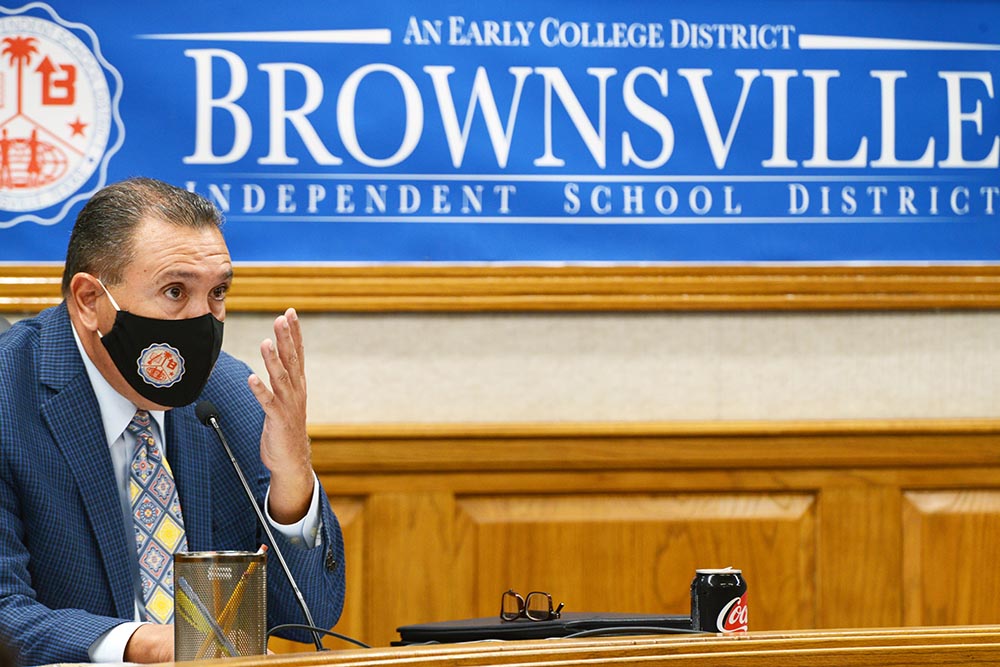
The Brownsville Independent School District Board of Trustees stopped short of setting the tax rate for 2023 when it voted at a meeting Tuesday to table the matter pending a review of projects that could be put on hold and asked administration to prepare a revised proposed tax rate.
On a 4-3 vote, the board initially approved a 2022 tax rate before going into closed executive session. Trustees Denise Garza, Prisci Roca Tipton, Eddie Garcia and Daniela Lopez-Valdez voted in favor. Drue Brown, Jessica Gonzalez and Minerva Pena voted no.
After returning to open session, the board rescinded the previous vote and voted 5-0-2 to ask for the review and new proposed tax rate. Trustees Denise Garza, Prisci Roca Tipton, Eddie Garcia, Minerva Pena and Daniela Lopez-Valdez voted in favor. Drue Brown and Jessica Gonzalez abstained.
After the vote Garza asked Superintendent Rene Gutierrez to provide the board with detailed information on the district’s bonded debt, which he said he would do.
Garcia made reference to the raises BISD employees recently received and said bonded debt should be reviewed.
“We gave all these raises, we don’t want to go back. We need to go back and review what’s out there and what we need to do,” he said.
The district’s fiscal year is from July 1 to June 30 and the budget is based on estimated tax values. The Cameron County Appraisal District sets official tax values in late September.
By law, the tax rate must be set by Sept. 30 so that the district meets its budget obligations and continues to make payments on bonded debt incurred by previous boards and approved by voters, Superintendent Rene Gutierrez said before the board went into executive session.
During discussion of the originally proposed tax rate, Gutierrez said that because of an increase in the Homestead Exemption that Texas voters approved in May, homeowners who claim the exemption would see their tax bill on a $100,000 home decrease by $156.
Responding to a questions, Gutierrez said the Homestead Exemption was increased from $25,000 to $40,000, meaning that homeowners who claim the exemption can have the value of their primary residence reduced by $40,000, in the case of a $100,000 home from $100,000 to $60,000, resulting in taxes of $156 less compared to 2021 taxes, he said.
However, taxpayers can only claim one homestead exemption. Gutierrez would only say that on investment properties, the amount taxes would go up depends on the value of those properties.




